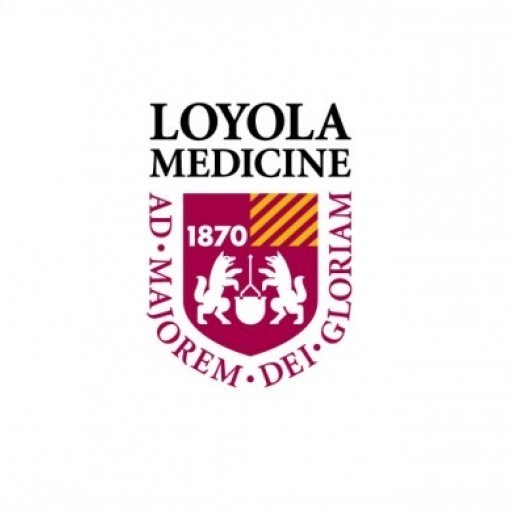Photos of university / #ucl
Description:
The Bachelor of Science in Computer Science at University College London (UCL) is an intensive, research-driven programme designed to equip students with a comprehensive understanding of the fundamental principles and practical applications of computing. This rigorous three-year degree provides students with the theoretical foundations and technical skills necessary to thrive in the rapidly evolving field of technology. Throughout the course, students explore core topics such as algorithms, data structures, software engineering, computer architecture, and programming languages, fostering strong analytical and problem-solving abilities.
UCL’s Computer Science programme emphasizes innovation and critical thinking, encouraging students to undertake pioneering research projects and collaborate on real-world problems. The curriculum is complemented by opportunities to specialise in areas such as artificial intelligence, cybersecurity, data science, machine learning, and human-computer interaction. Students gain hands-on experience through lab work, industrial placements, and interdisciplinary projects, which prepare them for diverse careers in academia, industry, or entrepreneurial ventures.
The university’s vibrant academic community provides mentorship from leading researchers and industry professionals, ensuring students stay at the forefront of technological advancements. UCL’s strategic location in London allows access to a thriving tech ecosystem, employment opportunities, and partnerships with leading technology firms and research institutions. The degree culminates in a final-year project where students demonstrate their ability to conduct independent research and develop innovative solutions.
Graduates of the BSc in Computer Science at UCL are well-equipped to contribute to ongoing digital transformation initiatives across sectors such as finance, healthcare, entertainment, and public services. They leave with a robust skill set, critical understanding, and a global perspective, making them highly sought after in the competitive job market. This programme is ideal for students passionate about computing, eager to solve complex challenges, and committed to making a meaningful impact through technology.
This programme provides students with the opportunity to study for an interdisciplinary, interprofessional qualification, examining higher and professional education policies and practices in relation to their own personal and professional experience.
Students undertake modules to the value of 180 credits.
The programme consists of two core modules (60 credits), two optional modules (60 credits), a dissertation (60 credits), or a report (30 credits) plus a further module (30 credits).
Core modules
- Innovation and Change in Higher and Professional Education
- Higher Education: Comparative and International Perspectives
Optional modules
- Learning and Teaching for Adults
- Understanding Education Policy
- Vocational Learning: Policy and Practice
- Understanding Education Research
- Understanding Research
Dissertation/report
All students undertake an independent research project which culminates in a 20,000-word dissertation or 10,000-word report.
Teaching and learning
Teaching is delivered through interactive lectures, seminars, group discussions, case study analysis and the use of simulations. In many modules there are opportunities for all students to participate on a variety of ways, including giving short presentations or seminar papers or leading group discussions.
Assessment is through coursework assignments of up to 5,000 words and a 20,000-word dissertation or 10,000-word report.
A minimum of a relevant second-class Bachelor's degree from a UK university or an overseas qualification of an equivalent standard and relevant professional experience of higher and professional education.
The financing of the program at University College London is structured to accommodate a variety of funding sources for both domestic and international students. Students are encouraged to explore comprehensive financial support options, including scholarships, bursaries, and loans offered directly by UCL or through external organizations. UCL provides a range of scholarships based on merit, need, or specific criteria such as country of origin or subject area. These scholarships are highly competitive and may cover partial or full tuition fees, as well as living expenses. Additionally, students can access government-funded student loans, such as the UK Student Loans, which offer manageable repayment plans contingent upon income level post-graduation. International students are advised to seek external funding options available in their home countries, as well as any program-specific scholarships administered by UCL for overseas students.
UCL also offers payment plans, allowing students to spread the cost of tuition and related fees over several installments, making financial planning more accessible. For research-based programs, students might have access to research grants or stipends, often funded by research councils or industry partnerships, which cover tuition fees and provide a living allowance. Students are encouraged to consult the specific program page for detailed information on available scholarships, financial aid packages, and eligibility criteria. UCL's Student Funding Office provides guidance and support for financial planning, application processes, and deadlines to ensure students can access necessary funding without undue hardship. The university commits to transparency in its fee structures and regularly updates its financial assistance offerings to adapt to changing economic circumstances. Overall, the program’s financing options aim to make higher education accessible to a diverse range of students, supporting their academic success and reducing financial barriers.
The MSc in Data Science at University College London is a highly regarded postgraduate programme designed to equip students with the essential skills and knowledge needed to analyze complex data sets and extract meaningful insights. This programme offers a comprehensive curriculum that spans core areas such as statistical analysis, machine learning, data management, and programming in languages like Python and R. Students are introduced to advanced techniques in data visualization, large-scale data processing, and cloud computing, enabling them to handle real-world data challenges across various industries including finance, healthcare, and technology.
The programme emphasizes a practical, hands-on approach, with numerous opportunities for students to work on industry-sponsored projects, utilize cutting-edge software tools, and collaborate with peers from diverse backgrounds. Throughout the course, students learn to develop scalable algorithms and implement data-driven solutions, preparing them for careers as data analysts, data scientists, or data engineers. The MSc also includes modules focused on ethical considerations in data science, ensuring that graduates understand the implications of their work in society.
Students benefit from UCL’s strong links with industry and research institutions, gaining access to guest lectures, workshops, and networking events that enhance their professional development. The programme typically takes one year full-time to complete, although part-time options may be available. Entry requirements include a relevant undergraduate degree, proficiency in mathematics and programming, and an interest in data analysis and computational problem-solving.
Graduates of the programme have gone on to work in leading tech companies, finance firms, healthcare organizations, and government agencies, equipped with the skills needed to analyze data, build predictive models, and make data-informed decisions. UCL's MSc in Data Science combines rigorous academic training with practical experience, positioning students at the forefront of the rapidly evolving field of data science.









